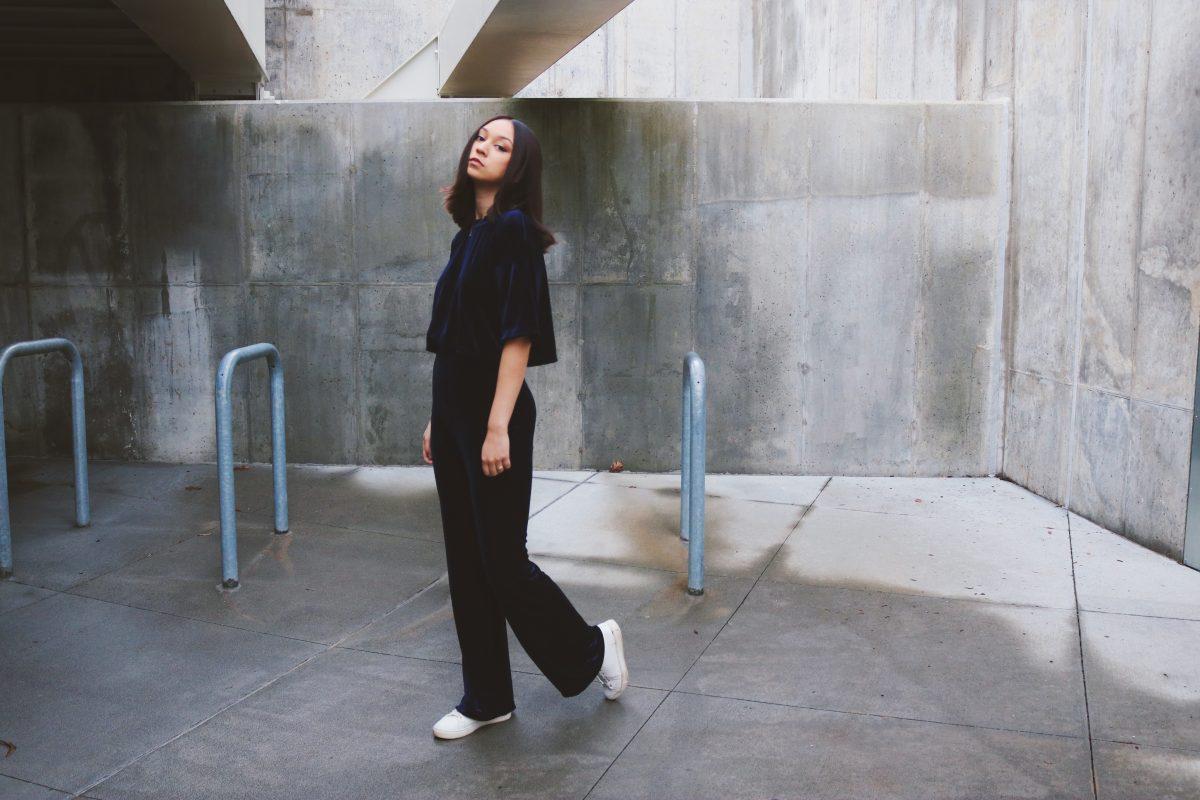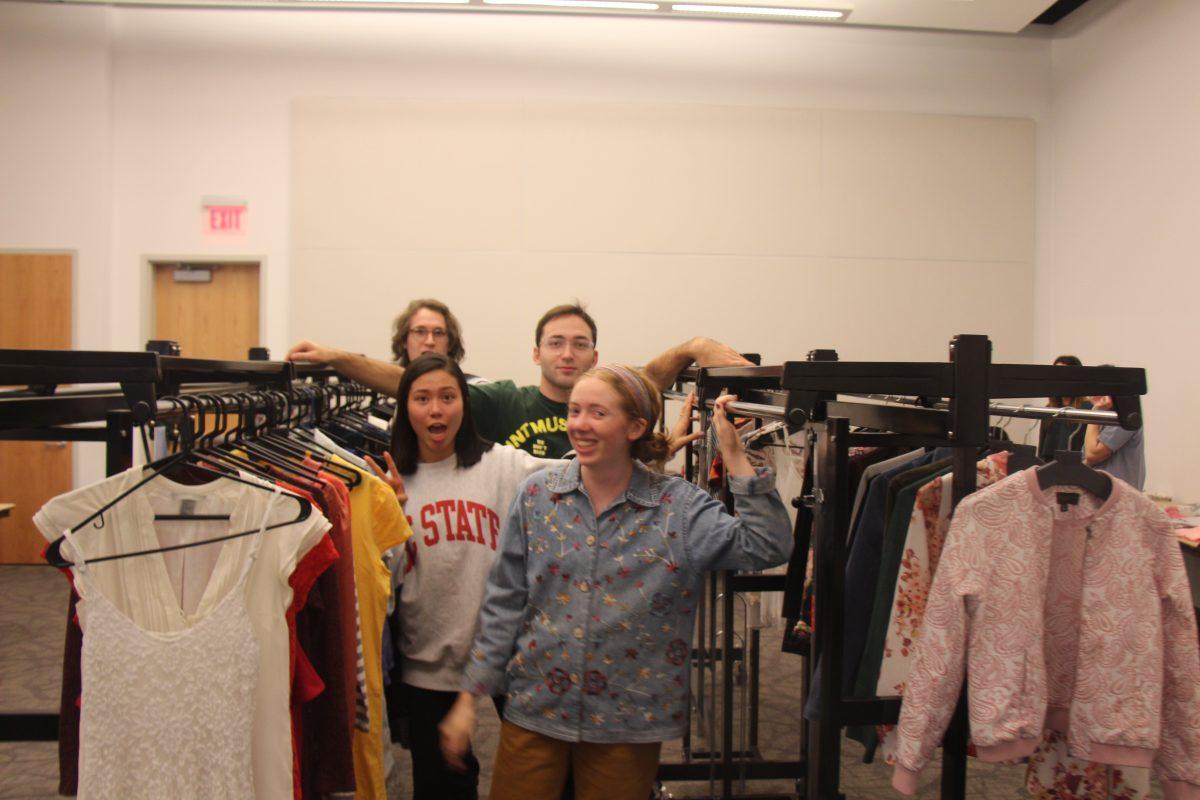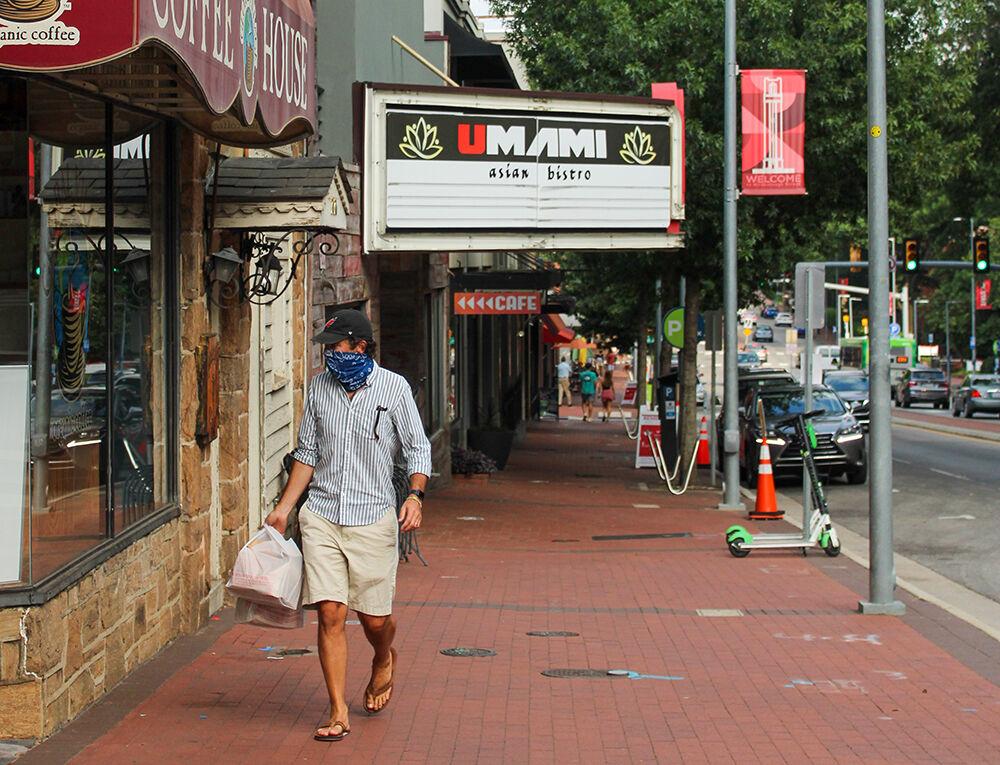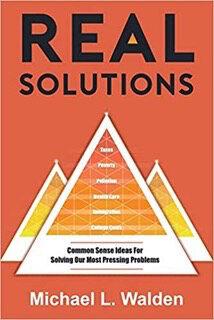After nearly a year of being trapped in a pandemic, we’ve become used to attending class from home. Sweatshirts have replaced button-downs, and slippers have replaced canvas sneakers as we log in to Zoom lectures for what feels like the millionth time. Comfort has become more important than looking chic, said Kiana Bonollo, a fourth-year studying fashion and textile design.
“Honestly, I don’t dress up for classes unless it’s an interview or a meeting, and [then] I’ll be very conscious of my background and how I look on camera,” Bonollo said. “For classes, because a lot of the teachers don’t require the camera to be on, I will just roll out of bed.”
Andre West, the director of Zeis Textiles Extension and an associate professor in textile and apparel technology at the Wilson College of Textiles, said it’s no surprise loungewear and pajamas have become the uniform of choice for most college students.
“People are buying a lot more of what I call comfort clothing, anything soft and nice and comfortable,” West said. “The comfort is not just the clothing itself, but the actual feeling on the body. In general, people want to be more relaxed.”
Thanks to the COVID-19 pandemic, trends such as loungewear and simple outfits have thrived in a world where you don’t have to step outside to attend class. Bonollo, a fashion YouTuber with over 60,000 subscribers, said how she would never repeat an outfit pre-pandemic.
“It’s funny, because you would think that fashion majors would dress up, but I felt like I was one of the only people to really go all out for classes,” Bonollo said. “I would always do my makeup and my hair. I would be one of the people who would not repeat an outfit, but I just loved dressing up for every single class.”
Now, that dedication to looking stylish seems nearly impossible for Bonollo.
“If I’m going out and about now, I’m wearing cute loungewear,” Bonollo said. “It’s never how I used to dress. They’re comfy, and I can still get work done around the house.”
Sustainable fashion has also seen a rise in engagement during the pandemic, with more and more brands pushing messages of climate change awareness, the wastefulness of the fashion industry and more.
“I think most companies have a sustainable mantra on their website,” West said. “Whether they use it for their benefit or a marketing tool are two different things, but I think there is definitely a sustainability aspect.”
According to West, attempts to turn piles of used clothing into brand-new garments can be ineffective and costly. Instead, he sees clothes-renting services, such as Nuuly, as part of the solution to a vast array of sustainability issues plaguing the fashion industry.
“When you get a big load of different clothes, it’s next to impossible [to repurpose them],” West said. “I see the renting of clothes may be the answer we’re looking for regarding sustainability because obviously we have a big problem when it comes to global warming and everything else regarding the textile industry.”
For students who don’t mind dressing up for Zoom University every once in a while, Bonollo offered some tips for those who want to look fashionable with minimal effort.
“I’ll accessorize with the earrings and necklace because those are the things that are visible and I’ll try to get those to match,” Bonollo said. “Usually, I’ll wear a plain shirt, because it looks better on camera — on camera, stripes and patterns look weird.”
It’s nearly impossible to predict what the fashion industry will look like in a post-pandemic world, but one thing is clear: Just as COVID-19 has changed the way we look at stadium concerts and surgical masks, the future of fashion will be redefined by the pandemic.
“If you look back at the 1920s, rather than 2020, that was a great fashion movement — when women’s independence was becoming a force, when more women were driving cars and getting out in the workplace, and that inspired a generation,” West said. “I think that’s the thing that is going to happen [today], so I expect that there’s going to be change, but I don’t know what that change will be.”













